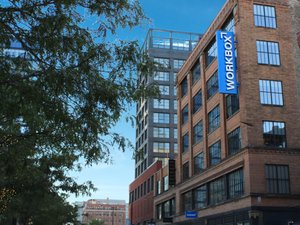We're likely decades away from a future where a majority of vehicles on the road are autonomous. But even just a few driverless cars on US streets can have a huge impact on traffic patterns, new research shows.
Research led by the University of Illinois at Urbana-Champaign found that even a small percentage of autonomous vehicles--as little as 5 percent--can greatly reduce stop-and-go traffic, along with decreasing accidents and improving fuel efficiency.
“Our experiments show that with as few as 5 percent of vehicles being automated and carefully controlled, we can eliminate stop-and-go waves caused by human driving behavior,” Daniel B. Work, assistant professor at the University of Illinois at Urbana-Champaign and lead researcher in the study, said in a statement.
The research team conducted experiments in Tucson, Arizona where a one autonomous vehicle circled a track with at least 20 other cars driven by humans. By controlling the pace of the driverless car, researchers were able to smooth out the traffic flow for all the vehicles on the track. Researchers found that this helped decrease “phantom traffic jams," in other words stop-and-go traffic created naturally by human drivers because they're texting, looking at an accident or are otherwise distracted and slowing down. The experiment also decreased total fuel consumption by up to 40 percent, researchers said.
The study added that even increased use of technology commercially available today, such as adaptive cruise control, could greatly benefit traffic congestion.
"Fully autonomous vehicles in common traffic may be still far away in the future due to many technological, market and policy constraints," researcher Benedetto Piccoli said. "However, increased communication among vehicles and increased levels of autonomy in human-driven vehicles is in the near future."
The research, which was paid for by the National Science Foundation’s Cyber-Physical Systems program, was co-led by researchers from Rutgers University; Temple University; the University of Arizona, Tucson; and UIUC.








